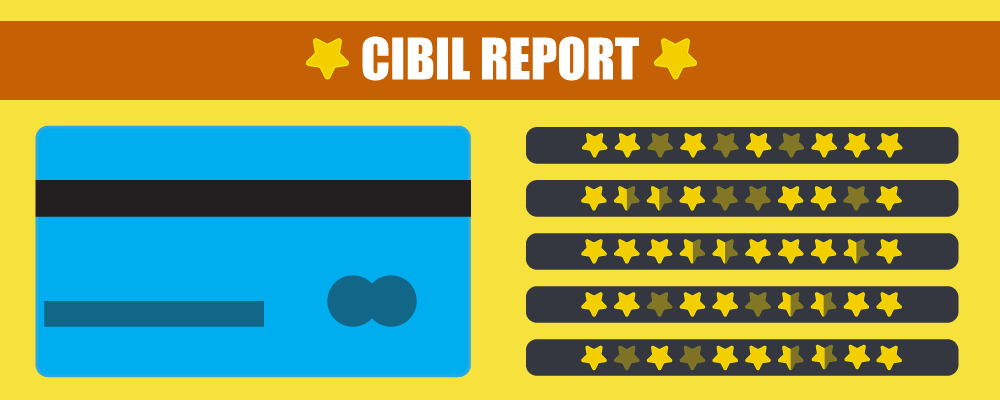The most important factor of a CIBIL report is, of course, your CIBIL score. More and more credit lending institutions are relying on the CIBIL score to gauge an individual’s eligibility for loans and other credit applications. Your CIBIL report, however, goes beyond providing just your Credit Score.
Going through your CIBIL report regularly will keep you updated about your credit exposure – the details of every debt and repayment. The report is designed to give you an edge in maintaining your financial health consistently.
What is CIBIL score?
CIBIL stands for Credit Information Bureau (India) Limited. Established in August 2000, the company collects and maintains credit records of individuals as well as organisations.
CIBIL obtains this information with the help of its associate partners which include members of banks and credit institutions. Information is provided to CIBIL on a monthly basis based on which CIBIL prepares a Credit Information Report (CIR) and Credit Score of an individual. This report is then provided to credit institutions, when requested, to help them evaluate and approve loan/credit applications.
A CIR has complete information on the credit you have availed, for example – Home, Car, and Personal, or other Loans. Here the credit payment history of an individual is summarised across different types of loans and different credit institutions over a period of time. A CIR does not contain any information about your Fixed Deposits, savings or investments.
How do I check my CIR?
You can check the CIR report online through the online score request form available at the CIBIL website. You need to pay a nominal fee of Rs. 470. You can pay with your Credit or Debit Cards or through net banking. After the payment is processed, you need to provide some authentication details. You will receive your CIBIL score over email 24 hours after successfully authenticating your details.
How to read my CIR?
Before we go into how the CIBIL report can help us, let us take a look at the various components that make up the report:
- CIBIL TransUnion Score
A Credit Score or the CIBIL TransUnion Score is a three-digit numeric indicator of your credit health. The score is derived using the credit history found in the CIR. The score ranges from 300 to 900. Higher the score, better the chances of getting your loan or credit application approved.
- Personal Information
Contains details like name, date of birth, gender and identification numbers such as PAN, Voter’s ID, passport number, driver’s license number, etc.
- Contact Information
This section contains the details of your address (up to four addresses), email and phone numbers.
- Employment Information
Monthly or annual income at the time of applying for credit. These details are furnished by banks and other credit organisations.
- Account Information
This section contains information about all the open loans and Credit Cards that you have. Details about the lender, type of credit (Home Loan, Car Loan, Credit Cards, etc), date when the account was opened, date of last payment, whether the account is held by an individual or jointly, amount of loan, amount overdue (if any), total outstanding and a monthly payment record for the last 36 months.
A red band against the information indicates that the particular information is disputed.
- Enquiry Information
Every time you apply for a loan or a Credit Card, the bank or financial institution you approach will access your CIR. The system makes a note of these details along with the loan details.
So, how do you use the CIBIL report in your favour?
The CIBIL report is an excellent indicator of your financial health. Think of it as a financial health check-up, if you will, but the complete overview that the CIBIL report provides can be extremely beneficial for keeping track of all your loans and repayment, as well as improving your credit status and standing. Here’s how:
- Check eligibility: Your CIBIL score is one of the most important parameters for the credit lending institutions to approve your loans. Keeping an eye on this score will help you improve your financial eligibility over time, making your loan applications that much easier!
- Manage accounts: Your CIBIL report gives an accurate picture of your debt situation – all the loans that you have applied for, co-applied for or guaranteed and all your Credit Cards (and any add-on cards used by your spouse or children). Any dispute between you and your lender is also highlighted. It’s imperative to solve any such disputes ASAP to keep your Credit Score healthy.
- Ensure correct information: The CIBIL report contains your complete credit history. It’s important to verify this data from time to time and get the discrepancies corrected on time, if any.
Additional reading:How to improve your CIBIL score
